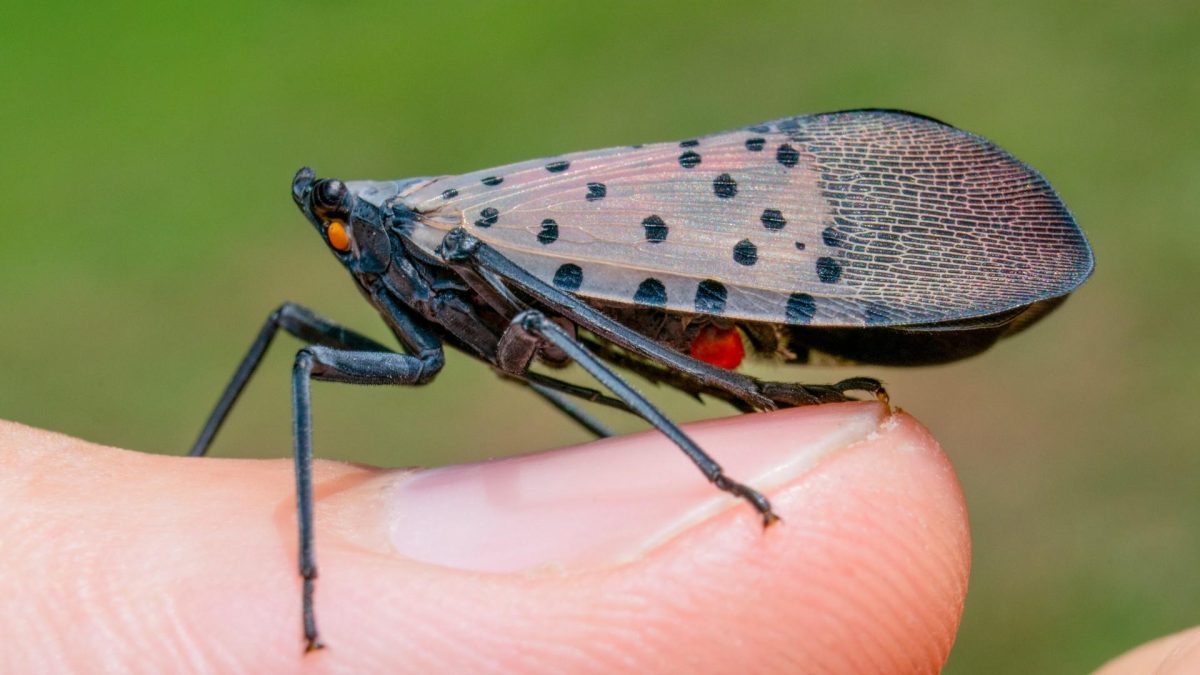Spotted lanternflies are back and dangerous for local farmers and gardens.
The spotted lanternfly is an invasive insect native to Asia, specifically China and Vietnam. They have since spread to Japan and South Korea as well as the United States. They lay their eggs on any hard surface and are known to “hitchhike” by laying eggs on vehicles.
Their primary food source is another invasive species called the Tree of Heaven, which is native to central China, but they eat crops as well.
Although they don’t have a primary predator, some bird species in the U.S. eat them because they are abundant.
Lanternflies have quickly become widespread throughout the United States and efforts are being made to reduce the population and hopefully help farmers.
The spotted lanternfly poses the biggest threat to grapes and vineyards. Because of this, in Loudoun County, a new initiative called “Scrape for the Grape” is aiming to help local vineyards and parks by having volunteers go out to scrape and squish as many egg masses as possible.
“Currently Scrape for the Grape has managed to kill millions of lanternflies through the squashing and scraping of egg sacs,” said senior Elliana Cruise who participated in the event.
The event started last year and, since then, more locations in need of scraping have been added. The first event was March 29 and the next is going to be April 5.
To volunteer, sign up on the Loudoun Invasives website. The event is from 10 a.m. to 1 p.m.
“Hopefully in the next few years this initiative will help curb the growth of the lanternfly more significantly and effectively,” Cruise said.
But there is no need to only fight lanternflies during events, the USDA is encouraging citizens to smash and kill any lanternflies or lanternfly eggs that they find.
To prevent the spread of the bug, close all car windows, check shipping containers, inspect trees and hard surfaces for eggs. If you do find eggs, crush them or scrape them into hand sanitizer or isopropyl alcohol to kill the bug.
The full eradication of these insects is unlikely, but with a joint effort the spread can be slowed and the damage kept to a minimum.








